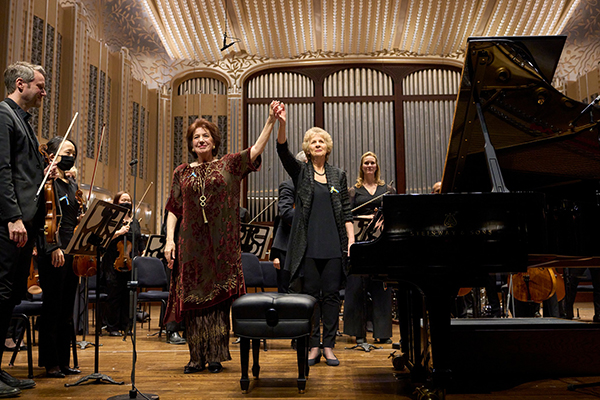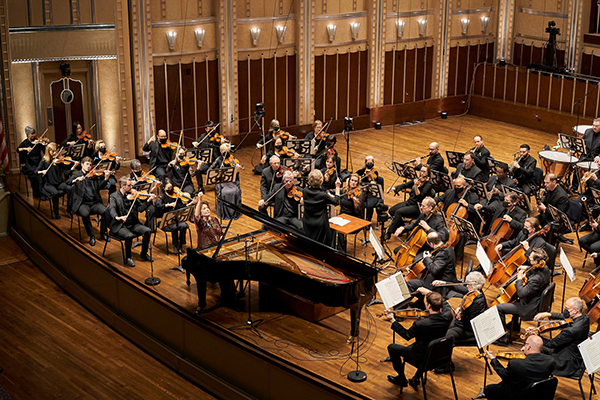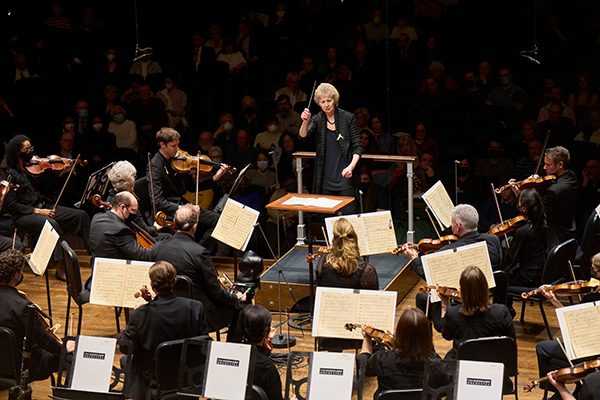by Daniel Hathaway

The geography of the event was established immediately with Benjamin Britten’s Suite on English Folk Tunes, a collection of five pieces completed in 1974, two years before the composer’s death. With folksy titles like “The Bitter Withy” and “Hankin Booby” (the latter commissioned for the 1967 opening of the Queen Elizabeth Hall in London), you expect rustic charm, which Britten delivers along with his own batterie of compositional devices and orchestral effects.

Cooper’s interpretation visited a wide range of colors, textures, and articulations. She and Glover made a splendid impression that will long be remembered.

Glover magically transformed the acoustic of Mandel Concert Hall into that of a virtual cathedral (the work was premiered at the Three Choirs Festival in Gloucester Cathedral in 1910), producing a thoroughly spiritual performance with an authentic British aura — something that can be elusive in the hands of non-native conductors.
The smaller orchestra, strung along the back of the stage, made a lovely contrast with the larger ensemble in which the solo quartet was embedded.

Why didn’t Mozart write a menuet in the “Prague” Symphony? Just curious, for it really isn’t missed in the three-movement work that closed Sunday’s program. Glover jettisoned her score to lead a stunningly festive performance.
This was the fourth concert in as many days, but the Orchestra played with a buoyant freshness. It was fun to see players moving up in their sections this afternoon — the oboe department being manned by Corbin Stair and Robert Walters, who sounded terrific. In fact, everybody sounded terrific this afternoon, a fact that didn’t escape the large audience, who were ebullient in their ovation.
Photos by Roger Mastroianni, courtesy of The Cleveland Orchestra.
Published on ClevelandClassical.com March 30, 2022.
Click here for a printable copy of this article




